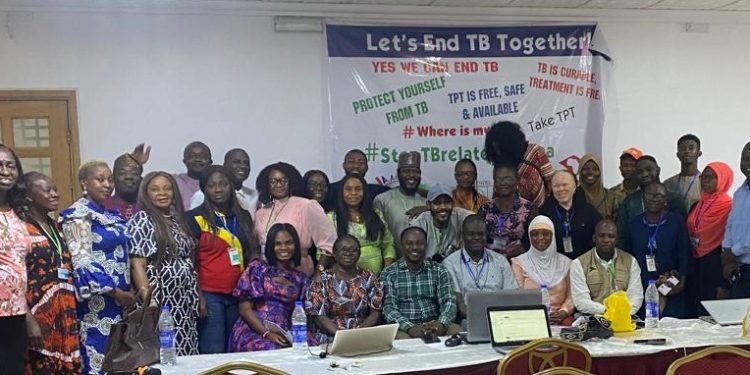Journalists Against AIDS (JAAIDS) has trained journalists across print, broadcast and online platforms on the role of journalists in strengthening partnerships and eliminating the burden of tuberculosis (TB) in Nigeria.
The three-day training, which held in Lagos, was supported by AURUM Institute and UNITAID through the Treatment Action Group (TAG).
Mrs Stella Makpu from the National Tuberculosis Leprosy and Buruli Ulcer Control Programme (NTBLCP), explained that the NTBLCP is implementing a National Strategic Plan (2021 -2026) which lays out a comprehensive strategy to achieve the ambitious goal of universal access to high-quality, patient-centred TB prevention, diagnosis and treatment services for all in Nigeria by 2026.
Mrs Makpu noted that Nigeria, being the country with the highest burden of TB in Africa and sixth globally, has been making efforts to align with the WHO End TB strategy program which seeks to End TB by 2030.
She however highlighted the importance of awareness creation in completing the efforts of the NTBLCP and to drive success.
Also, Dr Olusola Sokoya, Coordinator of the Lagos State TB and Leprosy Control Programme, in his presentation, emphasised the importance of creating awareness about the treatment programme available for anyone affected by TB, stressing that TB is curable and treatment is free.
Dr Sokoya buttressed that when awareness is created about TB, the public can seek TB treatment services which are available in DOTS facilities across the country.
“If less than 30% of the population is aware of signs and symptoms of TB, we have a long way to go. We can’t control, eradicate and eliminate the disease if people do not know about it,” he added.
He thereafter charged the media to use their platforms to create awareness about TB, its causes, risks, symptoms/signs and treatment.
Ms Olayide Akanni, the Executive Director of JAAIDS, said it is expected that journalists after the training will begin to create more awareness about TPT, thereby leading to increased uptake of TPT in facilities across the state.
Ms Akanni said “as people take up TPT, then we can reduce the burden of TB in Nigeria because if somebody who has TB is on treatment and they know that there are drugs that their households or close contacts can take that way, we reduce the risk of TB infection and we reduce the risk of people dying as a result of TB.”
She also emphasised that “TB is curable, treatment is free and we also hope that through this training, journalists can help us amplify the information about TB and we can reduce the myths and misconceptions that will continue to plague people and prevent them from seeking care.”
She also noted that through its IMPAACT4TB project, JAAIDS will continue “to promote literacy, acceptability and demand for TPT, supporting interventions focused on promoting understanding about TPT and debunking myths and misconceptions limiting uptake, specifically through community awareness and engaging relevant community leaders and influencers.”
Mr Lekan Otufodurin, the Executive Director of Media Career Development Network (MCDN) and a media trainer, said it is important that TB-related stories remain prominent in the media because Nigeria has the highest prevalent rate in Africa and the level of awareness and knowledge about TB is still very low with funding mainly donor-driven.
Other facilitators at the training include Dr. Babajide Kadri from the Institute of Human Virology Nigeria (IVHN); Dr Omonigho Ogwa from Damien Foundation; Makaita Gombe from AURUM Institute; Lynette Mabote from Treatment Action Group; and Umar Ismail from RAHAMA Foundation, Kano.
The training also featured experience sharing from TB survivors and a relative of a TB survivor who had used TPT.

